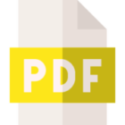Kalin Kalev – University of Economics – Varna, Finance and Accounting Faculty, 77 Knyaz Boris Blvd., 9002, Varna, Bulgaria
Keywords: Sustainability;
Accounting;
Teaching;
Self-reinforced;
Soft skills
Abstract: The paper outlines contradictions of “sustainability teaching accounting” in which word game (shown in inverted commas) represents the focal role of the teacher. The problems of the Bulgarian education system are already known – increasing complexity and interconnectedness as results of the breakdown of the value system of society – but not unique. Merely, institutional sustainability discourse is reductionist and mechanistic. And one of the problems of sustainable education is how to empower students with self-reinforcing practice. Attitudes of students of accounting teaching in IU-Varna are presented to justify current teaching in accounting courses. Some generalized proposals are introduced because as greater the students are exposed to sustainable thinking and innovative technologies, better critical thinking and self-reinforced behavior will be articulated.


9th International Scientific ERAZ Conference – ERAZ 2023 – Conference Proceedings: KNOWLEDGE BASED SUSTAINABLE DEVELOPMENT, hybrid – online, virtually and in person, Prague, Czech Republic, June 1, 2023
ERAZ Conference Proceedings published by: Association of Economists and Managers of the Balkans – Belgrade, Serbia
ERAZ conference partners: Faculty of Logistics, University of Maribor, Maribor (Slovenia); University of National and World Economy – UNWE, Sofia (Bulgaria); Center for Political Research and Documentation (KEPET), Research Laboratory of the Department of Political Science of University of Crete (Greece); Institute of Public Finance – Zagreb (Croatia); Faculty of Tourism and Hospitality Ohrid, University of St. Kliment Ohridski from Bitola (North Macedonia)
ERAZ Conference 2023 Conference Proceedings: ISBN 978-86-80194-72-1, ISSN 2683-5568, DOI: https://doi.org/10.31410/ERAZ.2023
Creative Commons Non Commercial CC BY-NC: This article is distributed under the terms of the Creative Commons Attribution-Non-Commercial 4.0 License (https://creativecommons.org/licenses/by-nc/4.0/) which permits non-commercial use, reproduction and distribution of the work without further permission.
Suggested citation
Kalev, K. (2023). Contradictions of Sustainability Teaching Accounting in Higher Education in Bulgaria. In V. Bevanda (Ed.), ERAZ Conference – Knowlegde Based Sustainable Development: Vol 9. Conference Proceedings (pp. 275-280). Association of Economists and Managers of the Balkans. https://doi.org/10.31410/ERAZ.2023.275
References
Amaral, A. R., Rodrigues, E., Gaspar, A. R., & Gomes, Á. (2020). A review of empirical data of sustainability initiatives in university campus operations. Journal of Cleaner Production, 250, 119558. https://doi.org/10.1016/j.jclepro.2019.119558
Bebbington, J., & Thomson, I. (2001). Commentary on: Some thoughts on social and environmental accounting education. Accounting Education, 10(4), 353-355. https://doi.org/10.1080/09639280210121141
Biggs, J., & Watkins, D. (2001). Teaching the Chinese Learner: Psychological and Pedagogical Perspectives. ISBN 10: 962809372X.
Deegan, C. (2019). “Legitimacy theory: despite its enduring popularity and contribution, time is right for a necessary makeover”, Accounting, Auditing and Accountability Journal, Vol. 32 No. 8, pp. 2307-2329.
Delors, J. (1996). Learning: The Treasure Within. UNESCO: Paris, France. Retrieved from http://books.openedition.org/ifra/3612
Dewey, J. (1916). Democracy and Education: An Introduction to the Philosophy of Education. Macmillan, New York
Education and Training Monitor. (2020). Accessed: 19.07.2023., https://op.europa.eu/webpub/eac/education-and-training-monitor-2020/countries/bulgaria.html#two
Jaya, G., & Glenn, S. L. (2002). Transformation through learning: Education about, for, and as sustainability, Frontiers in Sustainability, Vol. 3, https://www.frontiersin.org/articles/10.3389/frsus.2022.982718 , ISSN 2673-4524.
Lima Filho, R., & Casa Nova, S. P. de C. (2019). Self-Regulated Learning and Self-Determination Theory in Accounting Graduate Students in Brazil. European Journal of Scientific Research, 152, 236-255. Retrieved from https://ssrn.com/abstract=3625625
Martin, A., & Steele, F. (2010). Sustainability in Key Professions: Accounting. A report prepared by the Australian Research Institute in Education for Sustainability for the Australian Government Department of the Environment, Water, Heritage and the Arts.
O’Riordan, T., & Voisey, H. (1998). The Politics of Agenda 21 in Europe, Earthscan, London in Sterling, S. (2001). Sustainable education: Re-visioning learning and change. Bristol: Schumacher Briefings.
Panja, S. (2018). Creative methods of teaching accountancy – Its impact. https://doi.org/10.31235/osf.io/n3y26
Pilotti, M. A. E., & Al Ghazo, R. (2020). Sustainable Education Starts in the Classroom. Sustainability, 12(22), 9573. https://doi.org/10.3390/su12229573
Salmi, J. (2009). The challenge of establishing world-class universities. World Bank Publications.
Sharma, U., & Stewart, B. (2021). Enhancing sustainability education in the accounting curriculum: an effective learning strategy. Pacific Accounting Review, 34(4), 614-633. https://doi.org/10.1108/par-02-2021-0029
Van den Branden, K. (2012). Sustainable education: basic principles and strategic recommendations. School Effectiveness and School Improvement, 23(3), 285-304. DOI: 10.1080/09243453.2012.678865
Viviers, H., & de Villiers, R. (2020). Teaching methodology in accounting education. South African Accounting Education Stocktake, 27-56. https://doi.org/10.18820/9781928480471/02
Wolters, C. A. (2003). Regulation of Motivation: Evaluating an Underemphasized Aspect of Self-Regulated Learning. Educational Psychologist, 38(4), 189-205. https://doi.org/10.1207/s15326985ep3804_1
